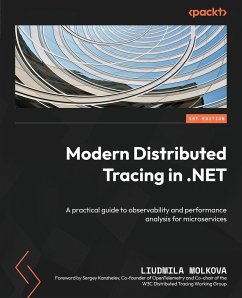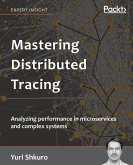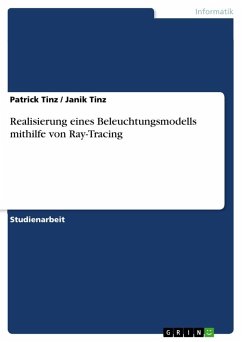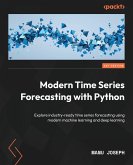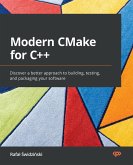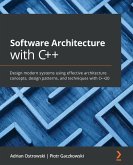Instrument .NET apps using OpenTelemetry and explore logs and .NET diagnostic tools to debug, monitor, and analyze the performance of complex systems in the cloud Purchase of the print or Kindle book includes a free PDF eBook Key Features:Get a clear understanding of complex systems using .NET and OpenTelemetry Adopt a systematic approach toward performance analysis and debugging Explore instrumentation techniques for common distributed patterns Book Description: As distributed systems become more complex and dynamic, their observability needs to grow to aid the development of holistic solutions for performance or usage analysis and debugging. Distributed tracing brings structure, correlation, causation, and consistency to your telemetry, thus allowing you to answer arbitrary questions about your system and creating a foundation for observability vendors to build visualizations and analytics. Modern Distributed Tracing in .NET is your comprehensive guide to observability that focuses on tracing and performance analysis using a combination of telemetry signals and diagnostic tools. You'll begin by learning how to instrument your apps automatically as well as manually in a vendor-neutral way. Next, you'll explore how to produce useful traces and metrics for typical cloud patterns and get insights into your system and investigate functional, configurational, and performance issues. The book is filled with instrumentation examples that help you grasp how to enrich auto-generated telemetry or produce your own to get the level of detail your system needs, along with controlling your costs with sampling, aggregation, and verbosity. By the end of this book, you'll be ready to adopt and leverage tracing and other observability signals and tools and tailor them to your needs as your system evolves. What You Will Learn:Understand the core concepts of distributed tracing and observability Auto-instrument .NET applications with OpenTelemetry Manually instrument common scenarios with traces and metrics Systematically debug issues and analyze the performance Keep performance overhead and telemetry volume under control Adopt and evolve observability in your organization Who this book is for: This book is for software developers, architects, and systems operators running .NET services who want to use modern observability tools and standards and take a holistic approach to performance analysis and end-to-end debugging. Software testers and support engineers will also find this book useful. Basic knowledge of the C# programming language and .NET platform is assumed to grasp the examples of manual instrumentation, but it is not necessary.
Hinweis: Dieser Artikel kann nur an eine deutsche Lieferadresse ausgeliefert werden.
Hinweis: Dieser Artikel kann nur an eine deutsche Lieferadresse ausgeliefert werden.

